[Computer Networking] {CMU14-740} Lecture 9: The Transport Layer; UDP
Posted ecoflex
tags:
篇首语:本文由小常识网(cha138.com)小编为大家整理,主要介绍了[Computer Networking] {CMU14-740} Lecture 9: The Transport Layer; UDP相关的知识,希望对你有一定的参考价值。
This is the first lecture in a series exploring the Transport layer. This layer is responsible for logical communication between applications running on (usually) different hosts. As such, it is designed with careful consideration for the requirements of a class of applications. Because of the diversity in applications, there is a need for several different types of transport protocols. This lecture will take a look at the simplest such transport protocol -- the User Datagram protocol or UDP. UDP is useful for situations where the application cannot allow for the delays inherent in other reliable transport protocols. UDP itself has no packet-to-packet reliability (it does have checksums to allow for error determination), so applications making use of UDP either do not have need of reliable communication or they prefer to provide more custom reliability services.

A logical connection between network hosts
Lesson Objectives
By the end of this lesson, the student will be able to:
- describe the mission, scope, addressing mechanism, data types and responsibilities of the Transport Layer.
- explain UDP, including advantages/disadvantages, segment format, and reliability assumptions.
- calculate the checksum of a UDP segment.
Reading
- KR Ch 3.1 - 3.3
Slides
Video

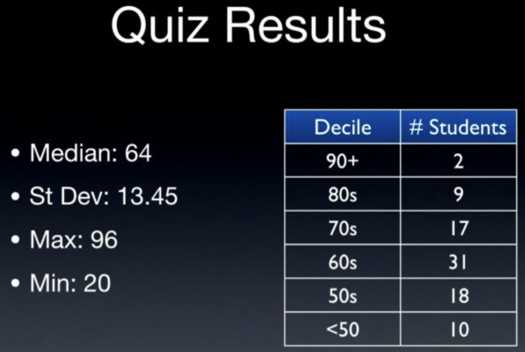
lower than his hoping :(
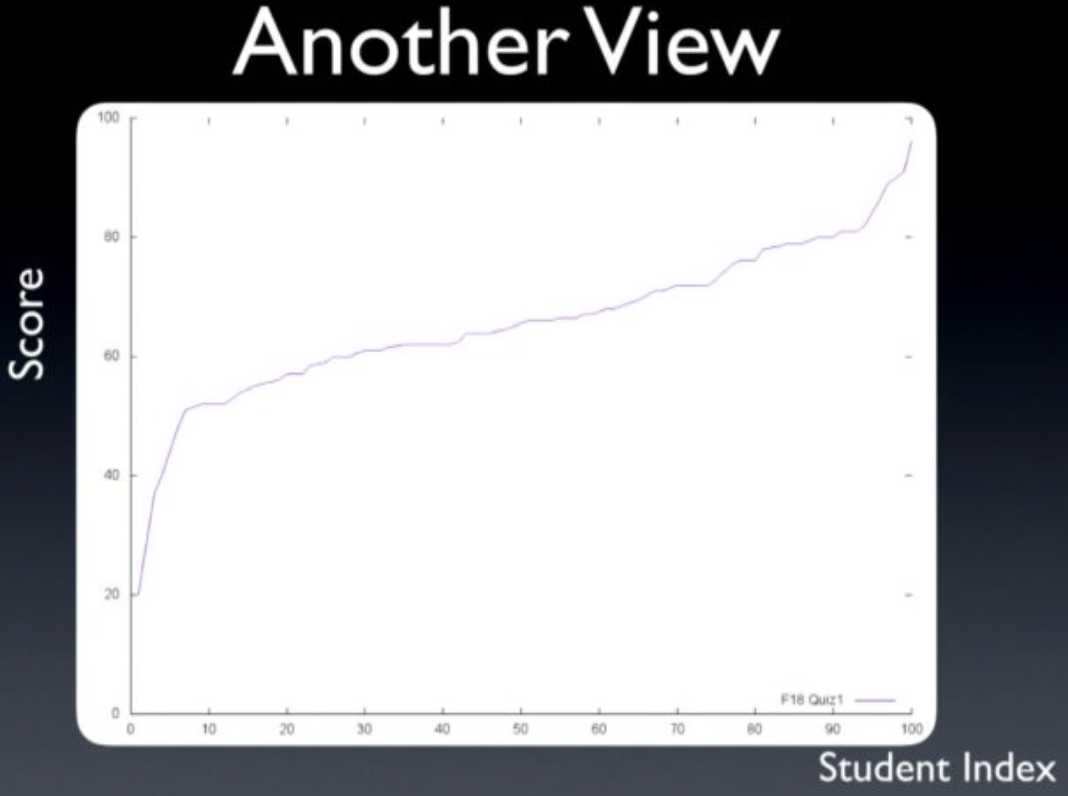
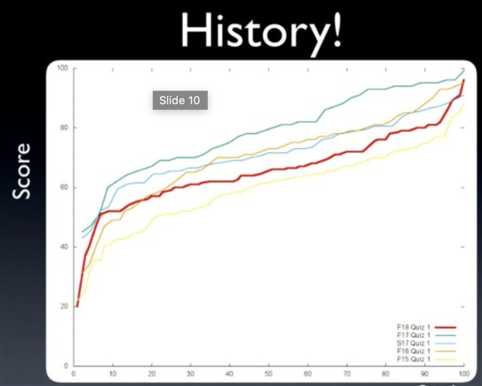
(just for fun, since I have no access to the quiz)
http://www.ini740.rocks/F18/lectures/class_9.html
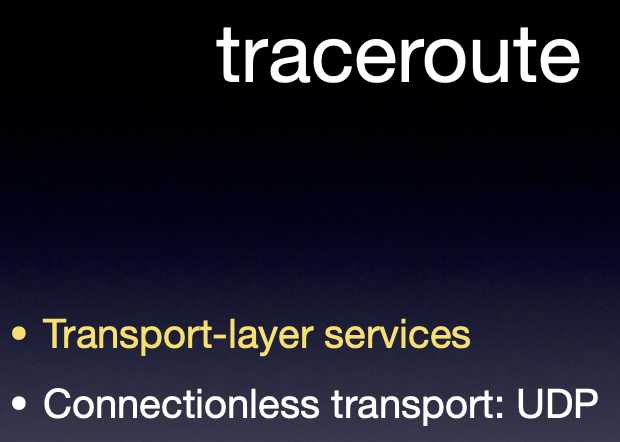
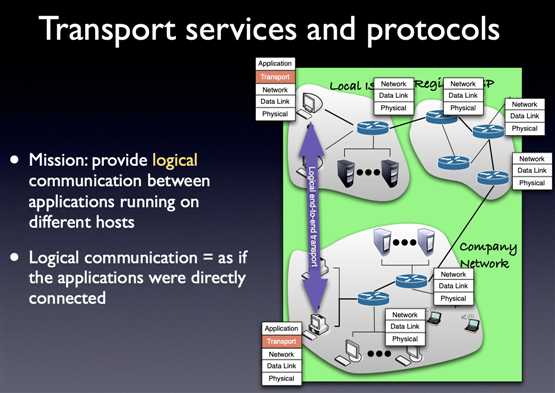
at transport layer, we dont have to worry about what‘s going on with routers, and network layer will handle it.
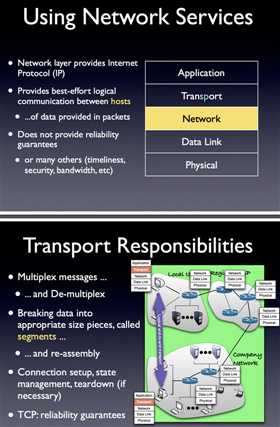
single App
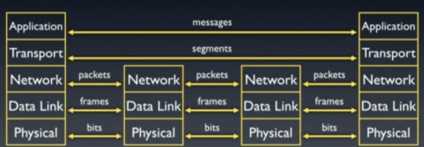
multiple Apps
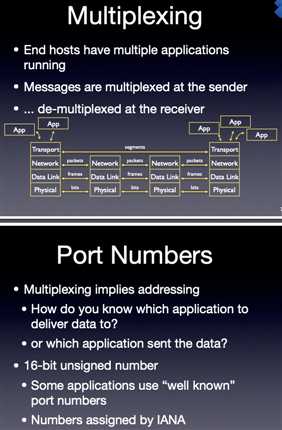
in transport layer => port number for each app
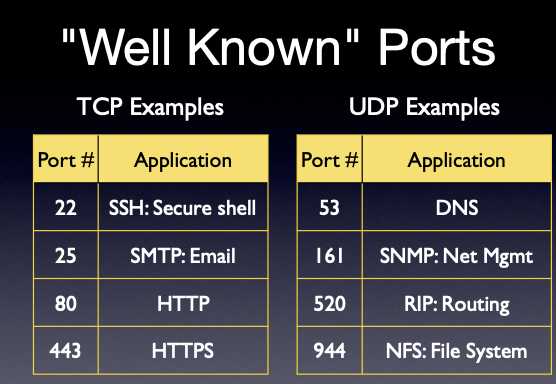
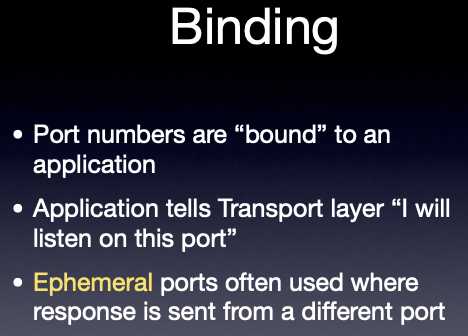
oftentimes, there‘s an API called "bind".
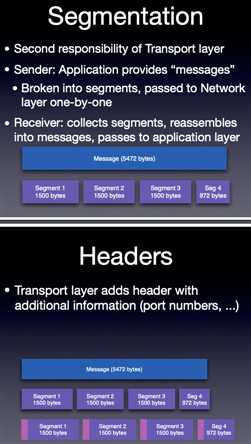
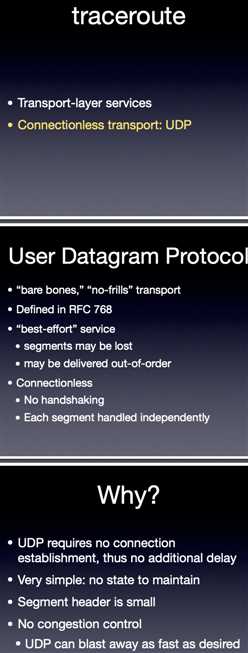
segment header => 8 bytes
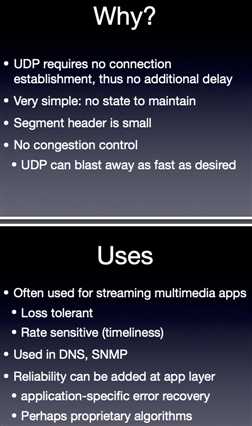
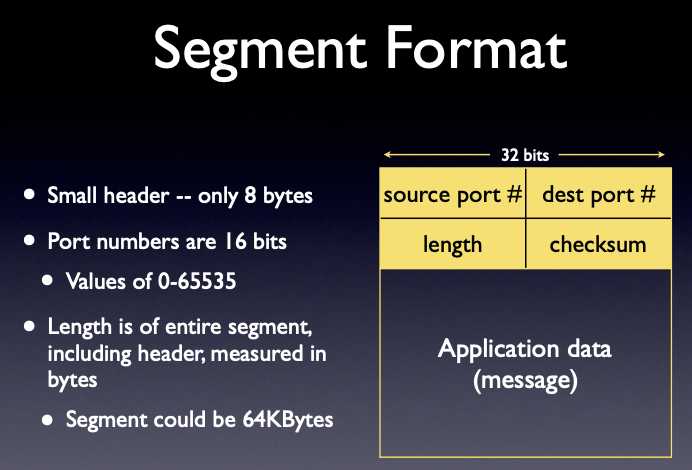
max size of a segment is 8KB??
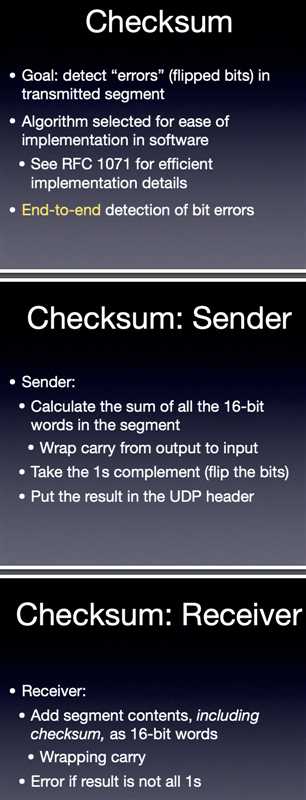
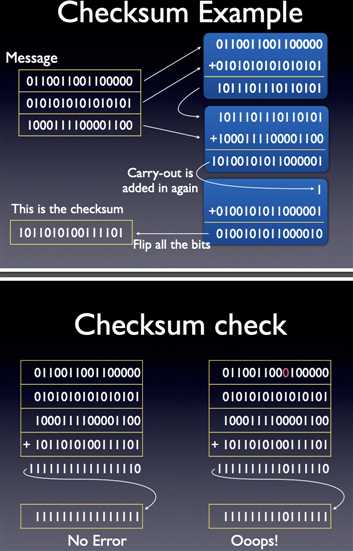

Layer 4: Transport Layer
https://www.cnblogs.com/ecoflex/p/10961831.html
The transport layer provides the functions and means of transferring data sequences from a source to a destination host via one or more networks, while maintaining the quality of service (QoS) functions and ensure the complete delivery of the data. The integrity of the data can be guaranteed via error correction and similar functions. It can also provide explicit flow control function. Though not strictly conforming to the OSI model, the TCP and User Datagram Protocols (UDP) are essential protocols in layer 4.
以上是关于[Computer Networking] {CMU14-740} Lecture 9: The Transport Layer; UDP的主要内容,如果未能解决你的问题,请参考以下文章
[Computer Networking] {CMU14-740} Lecture 9: The Transport Layer; UDP